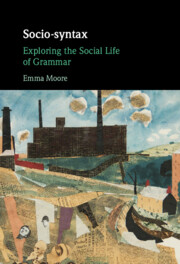
- Cited by 1
-
Cited byCrossref Citations
This Book has been cited by the following publications. This list is generated based on data provided by Crossref.
Cushing, Ian 2023. Policy Mechanisms of the Standard Language Ideology in England’s Education System. Journal of Language, Identity & Education, Vol. 22, Issue. 3, p. 279.
- Publisher:
- Cambridge University Press
- Online publication date:
- October 2023
- Print publication year:
- 2023
- Online ISBN:
- 9781108921299




